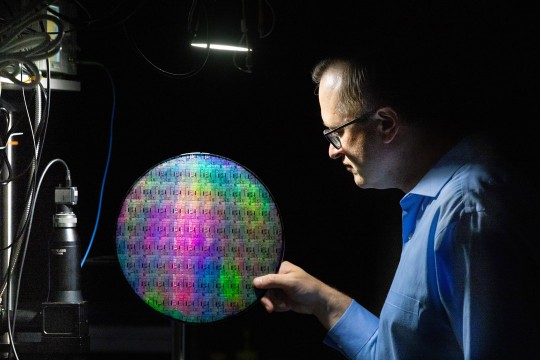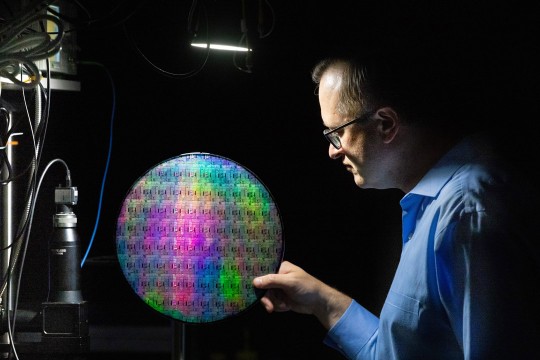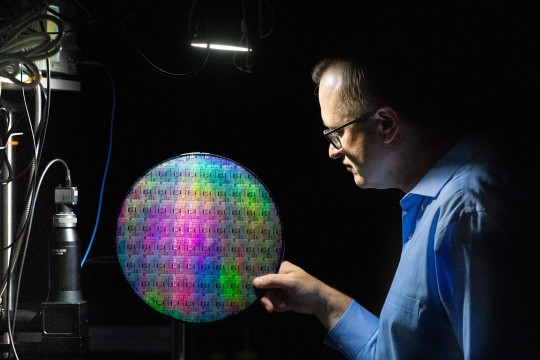News
Stefan Preble
-
February 13, 2026

NIST awards $2M to UR, RIT to expand Rochester Quantum Network
Rochester Business Journal speaks to Stefan Preble, Bausch and Lomb Professor and Ph.D. program director in the Department of Microelectronic Engineering, about how the funds will support quantum development.
-
February 13, 2026

URochester, RIT receive $2 million in tech funds
Rochester Beacon discusses the impact the funds will have on the further development of an experimental network connecting the campuses, speaking to Stefan Preble, Bausch and Lomb Professor and Ph.D. program director in the Department of Microelectronic Engineering.
-
February 12, 2026

RIT, URochester to receive $2 million to advance quantum communication network
RIT and the University of Rochester will receive $2 million in federal funding to further develop the Rochester Quantum Network (RoQNET). The National Institute of Standards and Technology is providing the funding to advance the future of secure quantum communications and to build new capabilities for RoQNET.
-
November 19, 2025

Manifesting quantum: How RIT researchers are navigating the next frontier of physics
RIT researchers are zeroing in on quantum photonics, the creation, control, and detection of light. Photonics has long been a specialty of the university. RIT led the team that developed the first quantum photonic wafer, which is key to the future of mass-produced quantum communication systems.
-
September 19, 2025

RIT, partners named finalist for funding to bolster region’s laser expertise
A Rochester and Finger Lakes region coalition that includes researchers from RIT has been named a finalist for the National Science Foundation’s Regional Innovation Engines (NSF Engines) program.
-
July 7, 2025

RIT, UR partner on first quantum communication experiment in upstate N.Y.
Spectrum News speaks to Stefan Preble, professor in the Kate Gleason College of Engineering, and microsystems engineering Ph.D. student Vijay Sundaram about the network.
-
May 22, 2025

RIT and UR leads breakthroughs in quantum technology advancements
WROC-TV speaks to Stefan Preble, professor in the Department of Electrical and Microelectronic Engineering, about the breakthrough in quantum technology advancements.
-
May 15, 2025

Single-Photon Source Points The Way to Quantum Networks
Optics and Photonics News highlights the network, which could potentially hook up diverse quantum computers over long distances.
-
May 15, 2025

Single-photon technology powers 11-mile quantum communications network between two campuses
MSN highlights the experimental quantum communications network between RIT and University of Rochester, speaking to Stefan Preble, professor in the Kate Gleason College of Engineering.
-
May 15, 2025

US researchers achieve 11-mile quantum data link using photon transmission
Interesting Engineering speaks to Stefan Preble, professor in the Kate Gleason College of Engineering, and microsystems engineering Ph.D. student Vijay Sundaram about the network.
-
May 9, 2025

Rochester Quantum Network enables quantum communications
Techstination interviews Stefan Preble, professor in the Kate Gleason College of Engineering, and microsystems engineering Ph.D. student Vijay Sundaram about the network.
-
May 7, 2025

Single-photon technology powers 11-mile quantum communications network between two campuses
Phys.org speaks to Stefan Preble, professor in the Kate Gleason College of Engineering, about RoQNET, an experimental quantum communications network using two optical fibers.


